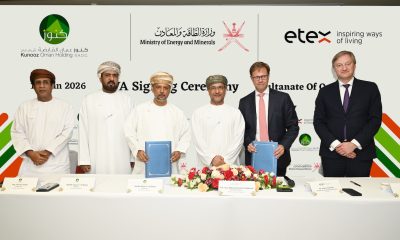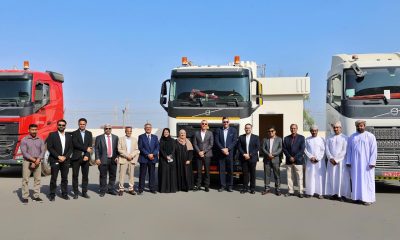GCC
GCC renewable energy targets saving 4 bn barrels of oil, cutting carbon emissions by 1.2 gigatonnes by 2030

The soon-to-be released figures equate to 25 per cent less annual fossil fuel consumption in the power and water sector in 2030, and an 8 per cent overall reduction in per capita carbon footprint over the next 15 years. Nearly three-quarters, 74 per cent, of the anticipated 69 gigawatts of renewable energy produced in the GCC will be generated in the Kingdom of Saudi Arabia.
The numbers will be published in an upcoming GCC Renewable Energy Market Analysis slated for release at WFES 2016, where global industry leaders, decision-makers, business innovators, and investors will be coming together to seek the increasing market opportunities brought on by the region’s continuous investments in renewable energy.
An important force behind this anticipated regional shift to renewable energy includes the socioeconomic benefits it will produce. The IRENA figures also show that because renewables, in particular solar photovoltaics, can be less water intensive than fossil fuel technologies, reaching targets would reduce consumption by 18 trillion litres, or 20 per cent, of water annually, and create roughly 130,000 direct jobs per year from now until 2030.
“With the demand for energy expected to increase by more than one-third over the next two decades, it is becoming essential that we diversify our resource pool to create a more sustainable model for energy security,” said Maria-Jose Nadeau, Chair of the World Energy Council, “Ensuring access to affordable, reliable, sustainable, and modern energy for all is among the 17 Sustainable Development Goals for 2030 put forward by the UN, and renewables will play an integral role in making this happen.”
-

 News2 months ago
News2 months agoAI Security Conference 2025 Hosted by Securado Highlights the Changing Cybersecurity Landscape
-

 Insurance2 months ago
Insurance2 months agoSupporting Community Wellness: Liva Insurance Sponsors Muscat Marathon 2026 with Free Health Checkups
-

 Interviews1 month ago
Interviews1 month agoEXCLUSIVE INTERVIEW: TLS Rebranding Marks Strategic Leap Toward Innovation, Sustainability & Growth
-

 Insurance1 month ago
Insurance1 month agoLiva Insurance Supports Community Wellness Through “Experience Oman – Muscat Marathon 2026”
-

 Investment3 weeks ago
Investment3 weeks agoLalan Inaugurates Its First Overseas Manufacturing Facility, Marking Sri Lanka’s First Investment in SOHAR Freezone
-

 Banking & Finance1 month ago
Banking & Finance1 month agoA New Platform for SME Growth: Oman Arab Bank Unveils Tumouhi
-

 News3 weeks ago
News3 weeks agoKunooz Oman Holding Partners with Belgian company Etex for Local Gypsum-Based Business Development
-

 Construction4 weeks ago
Construction4 weeks agoInternational Heavy Equipment hosts Open Day at its Refurbished Facility in Sohar Industrial Area






























You must be logged in to post a comment Login